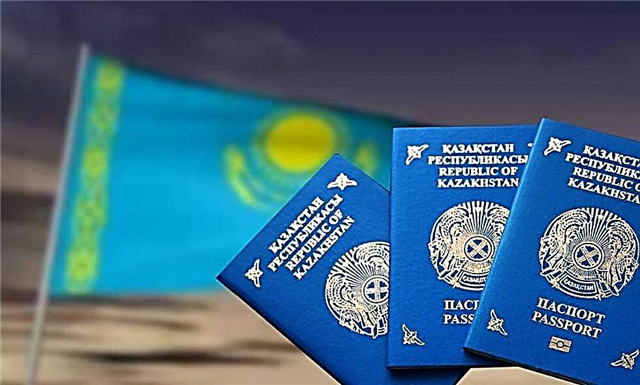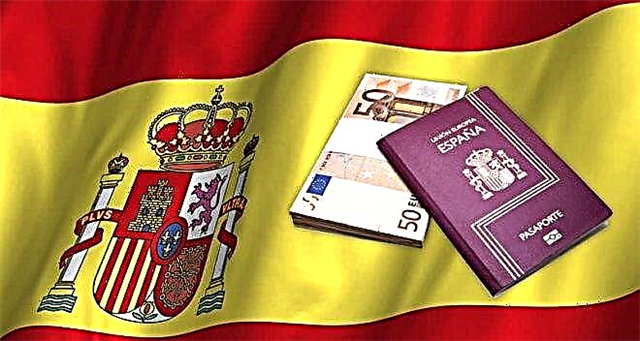A residence permit in Spain without the right to work provides its holder with the opportunity to live in this state on equal terms with local residents, but without engaging in labor activity. This means that a prerequisite for obtaining this category of residence permit is proof that the candidate has the means to maintain such a lifestyle. In other words, this type of migration to the Spanish kingdom can be called the most convenient way of moving for wealthy foreigners, provided they comply with a number of rules.

What gives a Spanish residence permit
Many citizens from different countries of the world dream of moving to live in Europe. And this is quite understandable, because Spanish residency has a number of advantages:
- the possibility of living in Spanish territory throughout the year. This option is especially suitable for those who have a steady income in their home country and can prove it;
- free movement throughout the European Union;
- the possibility of admission to a higher educational institution (but again without the right to employment);
- the right to open accounts with local banks and obtain loans;
- obtaining Spanish citizenship after 10 years of residence in the country;
- the privilege to use all social benefits provided by the state.
According to local legislation, a citizen who has received a residence permit of this category cannot travel outside Spain for more than 183 days. But after 5 years of stay in the country, on the basis of this document, it will be possible to obtain a permanent status (permanent residence), which eliminates this restriction.
What are the conditions for obtaining a residence permit without the right to work?
Judging by the name, the document we are interested in does not allow us to either get a job or register a company in our own name in order to receive income in Spain. It follows that when issuing an applicant a temporary residence permit, the country's authorities expect that his financial situation allows him to stay in the kingdom for a long time, without receiving any profit within it, and at the same time provide himself with everything necessary to maintain an acceptable standard of living.
The popularity of a residence permit that does not give the right to work is ensured by its simple procedure for obtaining and the ability to change this status after a year of living in Spain.
It should be noted that this type of permit does not exclude the possibility of working as a remote employee or doing business outside of Spanish territory.
So, who can become the owner of a residence permit of this category:
- Persons who have an income that allows them to provide a comfortable life in the country. Its amount must be at least four annual minimum wages in Spain per applicant and at least one for each family member. An alternative would be to have these funds in a Spanish bank account.
- Foreign citizens who have purchased real estate in Spanish territory in the amount of 500 thousand euros.
- Pensioners receiving payments at home, the level of which corresponds to the one stated above. If the pension does not reach the required value, you can confirm your income in any other way. For example, show the profit from renting real estate or from doing business in your home country.
This method of migration is also chosen by enterprising businessmen who manage companies through others.
If it is not possible to stay in the country for more than six months, it makes no sense to apply for a residence permit of this category - in this case, an ordinary multivisa will do.
The main conditions that allow us to obtain the type of residence permit we are interested in are:
- rental agreement or proof of ownership;
- a bank account in Spain for the specified amount or proof of income in the state of your citizenship;
- insurance for each family member, if you intend to enter Spain in full force.
The source of income can be:
- pension payments;
- profit from a business operating in another country or renting real estate;
- income from bonds or stocks;
- money savings (you will definitely have to confirm their origin).
In addition, the candidate must meet the following additional requirements:
- not be a violation of migration legislation;
- have no criminal record in the country of citizenship;
- not to be on the "black list" of persons who are prohibited from entering Spain and other states with which the kingdom has signed relevant treaties;
- not have diseases that could harm the local community.
In a word, you have to prove that you are not a person who, having received a residence permit, will become a financial, political or social burden for the country.
The procedure for applying for a residence permit
Obtaining a residence permit that does not allow its holder to carry out income-generating activities consists of two stages:
- Obtaining a category D national visa at the Spanish consulate in your home country;
- Obtaining resident status upon arrival in the kingdom.
The process begins with the preparation of documents. After the agency has reviewed your request, it will provide you with an answer. Be prepared for the fact that the state representative may invite you for a personal conversation to clarify some of the circumstances. After that, the documents are sent to the Spanish authorized bodies, where the issue of granting the application will be decided. The process takes about three months.
If a positive decision is made, an appropriate visa stamp with a validity period of no more than three months will be put on your passport. This is the period given to the applicant to enter the country.
If no one came for a visa within 30 days, the personal file is transferred to the archive and is considered refused.

Upon arrival in Spain, you will have exactly 1 month to apply to the local police (Migrant Office) for a Resident Card. This document will be issued only in a month. Therefore, it is important to plan everything so that the granted national visa does not lose its legitimacy and allows you to stay in the country for the required amount of time.
What package of documents should be prepared
In 2021, to submit an application to the consulate, you will need:
- Completed visa application form in duplicate.
- A copy of the internal passport.
- Foreign passport with a validity period of 1 year and its copy.
- Police clearance certificate (for those over 18 years old).
- Medical confirmation of the absence of dangerous diseases.
- Financial guarantees in the form of pension payments, bank statements, fees and other income from any country in the world except the Kingdom of Spain.
- Certificate 3-NDFL for the past 3 years and 2-NDFL for the current 12 months.
- Title deeds or lease agreements.
- Written justification of what caused the request for a residence permit in Spain.
- Photo.
- Medical insurance.
- A certificate from the tax authority that all obligations in the country of their citizenship have been fulfilled (meaning the payment of taxes, fines, etc.).
- Confirmation of the enrollment of children in schools or kindergartens in Spain, if you plan to move the whole family.
- A certificate issued at the place of work (if the applicant has one) that the company does not need his constant presence to perform duties.
- Receipt for payment of the duty (60 euros).
All documents must be translated into Spanish. After consideration, they must be certified by the consul.
Submission is made personally by the applicant or his authorized representative. In the second case, you will have to attach a power of attorney certified by a notary to the package of documents.
How long is this type of residence permit valid?
The resident card is issued for a period of 1 year. After that, it is subject to renewal.
There is no need to leave Spanish territory for the procedure. The renewal of the residence permit must begin no later than 60 days before this document becomes invalid. The package of documents should include:
- An application filled out according to the sample that can be found at the police station.
- Foreign passport with a copy of all its pages.
- One photo.
- A resident card that expires.
- Confirmation of the availability of funds for the period of extension of the residence permit.
- A certificate from the school that the migrant's children retain a place in the educational institution for the entire extension period. If at the time of application the candidate does not have such a document, he is given 30 days to receive it.
It will take about one month to review the request.
In case of a positive decision, the residence permit, which does not give the right to employment, will be extended for another two years.
Moreover, the applicant gets the opportunity to change his status and apply for a residence permit, which gives the right to employment. To do this, you will have to conclude an employment agreement with a local employer.
How much will it cost to obtain a residence permit
What kind of budget is needed for the entire procedure will depend on which method of registration you choose:
- on one's own;
- through intermediaries.
Contacting intermediary firms will significantly save time, but not money: as a rule, a full package of services costs 2500-3000 euros for a family of three.
If you decide to tackle the issue yourself, then the cost items will look like this (using the example of Russia):
- consular fee - 60 euros;
- translation of a package of papers and its legalization - 6,000 rubles;
- medical certificate of health status - 1,500 rubles;
- Apostille on police clearance certificate - 1,500 rubles.
In different countries and even cities, the figures quoted can vary significantly.
Let's summarize
Moving to Spain on the basis of a residence permit without the right to work is an excellent way out for those who have a constant income sufficient for legalization in their home country. The main thing is to confirm that these funds are sufficient to lead a decent life in the target country.
This type of residence permit can be applied for by retirees, businessmen making a profit in any other country except Spain, owners of real estate in Spanish territory, and even migrants working remotely.
An important condition: income must be at least four annual minimum wages per applicant and one more for each of his family members. There are quite a few chances for those who provide account statements in a Spanish bank or show income well above the established minimum.
The legalization process takes place in two stages: requesting a Spanish national visa in the country of citizenship and obtaining a resident card already in Spain. In case of refusal, nothing prevents the applicant from entering the country on any visa permit or requesting a residence permit again, but on more compelling grounds.











